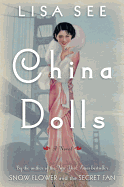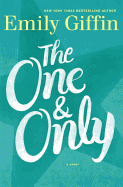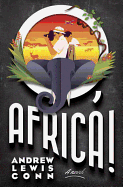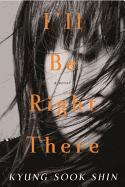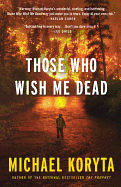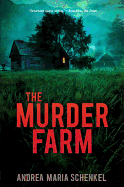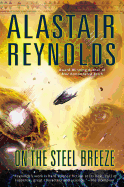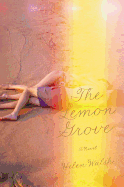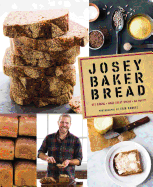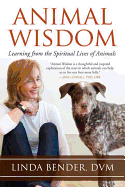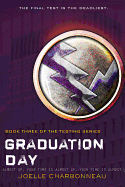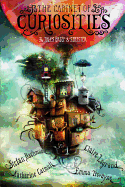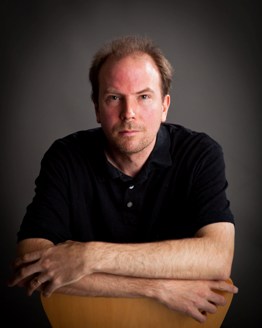 Mark Lawrence is the author of Prince of Fools (Ace Books), the first in a new series (The Red Queen's War) that takes place in the same fantasy setting as his first trilogy, The Broken Empire. In this new novel, the foppish Prince Jalan of the Red Queen's court is trapped by fate into a long heroic journey with Norse warrior Snorri ver Snagason. The book follows the unlikely pair as they wrestle with monsters from the underworld, mysterious necromancers and a host of bad people out for their blood.
Mark Lawrence is the author of Prince of Fools (Ace Books), the first in a new series (The Red Queen's War) that takes place in the same fantasy setting as his first trilogy, The Broken Empire. In this new novel, the foppish Prince Jalan of the Red Queen's court is trapped by fate into a long heroic journey with Norse warrior Snorri ver Snagason. The book follows the unlikely pair as they wrestle with monsters from the underworld, mysterious necromancers and a host of bad people out for their blood.
Lawrence is a research scientist in artificial intelligence by day, and cares for his family, which includes a daughter with severe disabilities and a wife with multiple sclerosis. He's held secret-level clearance with both the U.K. and U.S. governments.
Jorg, the protagonist in the Broken Empire novels, is described as "a charming, immoral boy" on your website. How similar is Prince Jal, from Prince of Fools, to Jorg? Was this a deliberate choice, a fan service?
I think the word for Jorg was amoral. He didn't seek to be wicked, he just had no qualms about doing what was required for his goals. Jalan probably is closer to immoral, he enjoys misbehaving.
Jorg and Jalan are very different, so different in fact that I didn't have to rely on giving them very different names and circumstances to try to put space between them. Jorg is violent and fearless, Jalan is a lover, not a fighter, and distinctly cowardly. You could count on the two of them to do the opposite thing in most situations.
This novel is set in a world long after an apocalypse, with "Builder" artifacts populating the world, which has very recognizable peoples and races. How does this serve your story?
The two trilogies are set in the same world, at the same time, and in many of the same places. The setting is ostensibly medieval-esque, but it does become apparent that this is built on our own world, hundreds of years after an apocalypse. The leftover artifacts do give a lot of scope for fun and creativity--though this aspect features more significantly in the Broken Empire books.
Although fantasy is unlimited in scope and setting, I find that it works best when you only change a limited number of things, and with a purpose. It would be pointless, for example, to change the time units to "floorgs" and have 29 of them in a day. Introducing too many random pieces of world-building overloads the reader and takes the focus off the characters and story. By choosing a setting that is to some degree familiar and operates largely on rules we understand, I save the labour of educating the reader, and instead can delight them (or at least myself) with the things that have changed, and have plenty of room for character development and plot.
Prince Jal is a good man with questionable habits and a very flexible sense of morality when it comes to beautiful women. What about Jal interests you? Why write him this way?
I was inspired to write Jorg Ancrath by Burgess's classic A Clockwork Orange (1962)--a violent, amoral killer, at the same time charming and intelligent. The inspiration for Jalan came from George MacDonald Fraser's book Flashman (1969) and subsequent series. MacDonald Fraser himself lifted Flashman from Tomas Hughes's Tom Brown's Schooldays (1857), so he is a new incarnation of a character who's been with us at least 150 years!
With Jorg in Prince of Thorns, I found the character compelling and wanted to unravel him. With Jalan, it's more a case of just being hugely entertained by his blundering and basic instincts.
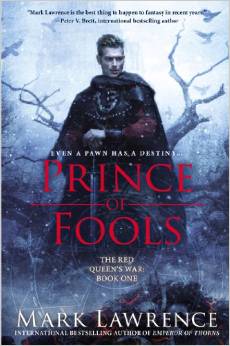 Snorri is almost the opposite, though with his own down-to-earth sense of humor. What about the dichotomy between these two men do you find most compelling for you?
Snorri is almost the opposite, though with his own down-to-earth sense of humor. What about the dichotomy between these two men do you find most compelling for you?
I guess the "odd couple" has been with us in various forms for even longer than Harry Flashman. It's a simple truth that if you force two interesting but very different people to keep each other's company, you get four times the fun. You might call the concept "well used" or if you were cruel, "over used," but really it's such a basic building block, that like romance or revenge it can be endlessly re-imagined to give us something new and enjoyable.
Do you still work a day job? How have things changed with success for your family? Do you have to go on book tours, and the like?
Life is remarkably similar. I do still work the day job--authors tend to have short careers and with my duties caring for a very disabled child it would be very hard to find a new research post if I gave up mine.
My daughter's health problems continue to be very challenging, my wife's health continues to deteriorate so, no, I don't do book tours or go to conventions, I just can't get away.
I see a lot of people busy writing and hoping to get published. Often it's clear that this is very important to them and that they really do think it will be the answer to their prayers/turn their lives around, etc. I never had any ambition to be an author--I just liked writing--and I certainly didn't expect to be one. So when it happened, I didn't have anything built up in my imagination about what it would be like. Also, even once published, I was fairly sure that like the vast majority of published authors I would make a rather small splash and vanish without trace.
So, the fact that being an author and selling hundreds of thousands of books around the world really hasn't changed my life much isn't a disappointment or surprise to me. The biggest change is simply that I spend more of my spare time writing than I used to--I've had to put on hold the various hobbies listed in my bio. And most of the time that I'm not writing, doing scientific research at the day job, or looking after my daughter, I spend interacting with readers and other authors on social media. That part's really quite fun. --Rob LeFebvre, freelance writer and editor
Mark Lawrence: Charming, Immoral Heroes
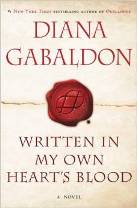 Since 1992, Diana Gabaldon's Outlander series has been building the unlikely romance of Jamie, an 18th-century Scot, and Claire, a World War II-era British nurse. Those who haven't yet read the time-traveling romance will want to start the first volume, Outlander, now, as the Starz adaptation premieres this summer. For those caught up with the books, we have some suggestions to tide you over until the series airs--or until we can get our hands on the next Outlander volume, Written in My Own Heart's Blood, due June 10.
Since 1992, Diana Gabaldon's Outlander series has been building the unlikely romance of Jamie, an 18th-century Scot, and Claire, a World War II-era British nurse. Those who haven't yet read the time-traveling romance will want to start the first volume, Outlander, now, as the Starz adaptation premieres this summer. For those caught up with the books, we have some suggestions to tide you over until the series airs--or until we can get our hands on the next Outlander volume, Written in My Own Heart's Blood, due June 10.



 Snorri is almost the opposite, though with his own down-to-earth sense of humor. What about the dichotomy between these two men do you find most compelling for you?
Snorri is almost the opposite, though with his own down-to-earth sense of humor. What about the dichotomy between these two men do you find most compelling for you?